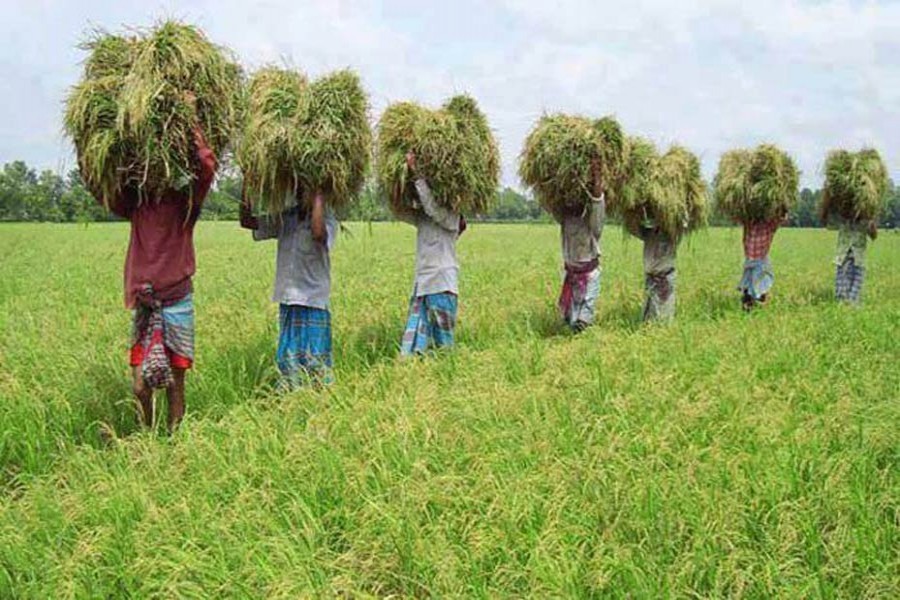The government's decision to buy Boro rice directly from farmers must have come as good news for those who toil the hardest to keep the nation's food supply in order. In what was dubbed a 'major policy shift' of the government by the Financial Express on Saturday, the Cabinet Division has written to the food ministry, as also to the commerce ministry, to take necessary steps so that the current stock at silos, which is at an alarming one-third of the requirement for a sense of safety, is augmented through direct purchase and enhanced import. The decision will no doubt inject a sense of security in the market. However, the greatest beneficiary of this step, if carried out properly, will be the growers, who lose a remarkable proportion of their due to the middlemen. This is no doubt an emergency-time step. Indeed, in a market economy, traders and middlemen are necessary participants. That last year they failed in their task was largely, and possibly, because of the pandemic of Covid-19 now prowling throughout the country at its worse form.
Herein would lie the question of the success of the government machinery. Already, as reported, the Boro rice harvest has hit the ground in the haor areas of the country, while it will be ready for harvesting in the first week of next month elsewhere. Also, this is a time when the scourge of the pandemic has been the most pathetic and difficult for successive years, with records being broken every day in numbers of death and detection now. In the grower and procurer contact, all health-related safety measures must be ensured. Lives cannot be put at risk in an act where the main target is procurement of an item at a lower cost so important for human life. The other issue that would be raised is about the bureaucracy's proverbial lethargy and sluggishness, beside its usual quota of deviation from good governance. Any procurement drive directed from government desks therefore runs the risk of people's displeasure at times. These are to be kept in mind.
Nonetheless, it can well be surmised that the government's direct purchase drive and the desire to import more food grains from abroad are basically well-intentioned. Coming on the back of a pandemic-ridden year of death and distress, of job loss and failure in procurement, this year should not be the same again. Everybody would want this, more so the policymakers. As things stand now, severe lockdowns are going to be in place for some more time. That will hurt the economy. How a prolonged lockdown and procurement drive will be adjusted will be under scrutiny. A section of the jobholders in the informal sector has already been hard hit. Some have come in the open with disobedience of restrictions. However, food safety based on prudent procurement is the need of the hour. Apart from stabilising the market, it is also needed for the various food dole-out programmes the government runs. However, this is a different year of procurement, either at home or from abroad as the pandemic threatens to prolong and derail plans. While the government has done the right thing by asking for direct purchase from growers, extra caution and safety measures are needed to crown the drive with success. And one must remember that after Boro rice, the issue of Aman rice procurement will come up. Success in one will be a boost for success in the other. A lack of achievement in procurement in the recent past ought to be put right. All this is for a people that cannot be left with a sense of food insecurity, let alone go hungry.


